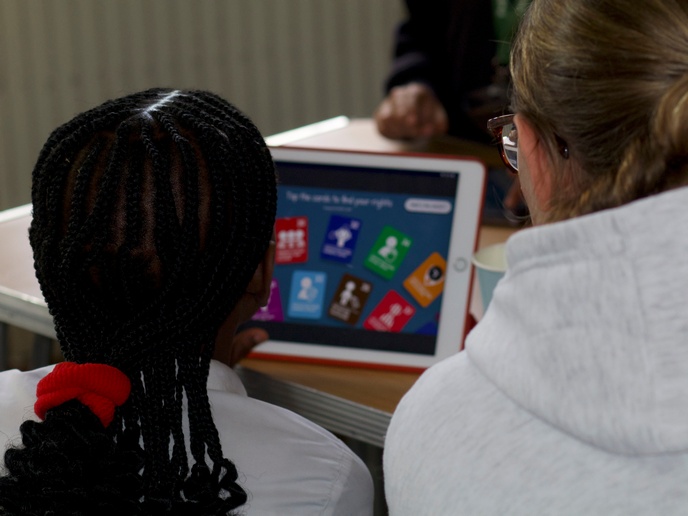The game that builds young people’s legal capability
When it comes to protecting children from domestic harm, many children don’t speak up or hide the situation, because the abuse is normalised, to protect caregivers or out of fear. “We need to find ways to help children and young people understand how the law applies to them, and to the adults involved in their care,” says Dawn Watkins(opens in new window) from the University of Sheffield and coordinator of the EU-supported FORTITUDE project. FORTITUDE, which was funded by the European Research Council(opens in new window), was established to improve children’s abilities to engage with the law-related issues encountered in everyday life – referred to as their ‘legal capability’. With research into this area previously only focused on adults or those nearing adulthood, this includes their rights under the UN Convention on the Rights of the Child (UNCRC(opens in new window), and under domestic law. Findings resulted in Law Yeah!, a digital and board game designed to help players recognise risky situations and empower them to seek support and protection. A new theoretical framework for developing children’s legal capability developed by the team underpins the game’s design, which Watkins argues is useful to others designing learning interventions internationally.
Gamifying children’s ‘legal capability’
FORTITUDE was guided by an action research model(opens in new window), with each stage involving children and young people (aged between 3 and 15 years). Children and young people initially helped create game scenarios such as bullying, before further co-design using various techniques including: drawing, mapping, diamond-sorting, story-boarding and conversations. The game also benefited from the input of two advisory boards for children and young people, alongside advice from two ambassadors groups for children’s rights, from primary and secondary schools in England. The primary school advisory board and the primary school children’s rights ambassadors both showcased the game at the University of Sheffield(opens in new window). The legal learning within Law Yeah! focuses first on how the law and/or the UNCRC applies to the specific situation, before exploring legal concepts more generally. “In a bullying scenario, the game character Advocat advises players of their right to be protected from this bully, and players are given four response options and feedback on their choice. This reverses the typical approach of legal learning, ‘decentring’ the law and legal institutions by prioritising applied legal/rights knowledge,” Watkins adds.
Planning for a Law Yeah! roll-out across schools
Law Yeah! is designed to be played across a wide age range. “The digital game’s initial levels are suitable for very young children, with adult support, while older children can go further to challenge themselves in ‘the legal training ground’. With two levels, trainee and expert, the board game is suitable for children aged 7 upwards because it involves reading,” explains Watkins. The team evaluated the effects of play in school and at home using gamified surveys measuring legal knowledge, skills and confidence. They also conducted a small-scale qualitative case study with 3-6 year olds. The findings indicated that repeated play improved children’s rights and legal knowledge and skills. School was found to be a more effective context than home for children aged 7-11 years, firstly when the game was integrated into teacher-led sessions, and secondly, when played independently on individual devices. “Law Yeah! doesn’t require teacher training, as all the learning is self-contained, so it can be taken up by schools quite easily as a meaningful and engaging support tool,” says Watkins. Watkins continues to work towards making the digital and board game versions of Law Yeah! openly available for schools to trial, or adapt under a free-licensing system. Meanwhile discussions with key stakeholder are ongoing to explore how best to develop children and young people’s legal capability more widely.







